Last week, a few colleagues and I traveled from Tbilisi to a town called Akhalkalaki for the opening of a new branch office. We drove over four hours through landscapes that I can only describe as magical, in the way that I think of Ireland as being magical: rolling hills, mountainsides, crumbling castles, herds of unattended cattle blocking traffic. Fairy tale material.
Akhalkalaki is located in the southern part of Georgia, close to the borders of Turkey and Armenia. 90% of its residents are ethnically Armenian and speak little, if any, Georgian, so most of the communication that took place that day was in Russian.
The shiny new office filled up with with smiles and hand shakes. Local media came by to interview the managers and film the ribbon-cutting ceremony. We celebrated with wine, hors d’oeuvres, and a big sparkly cake. Optimism and hopefulness pervaded, and as far as I could tell, remnants of old ethnic grudges never surfaced.
Akhalkalaki is not the only part of Georgia that identifies itself as not-entirely-Georgian. You may have heard of the regions of Abkhazia and South Ossetia during the five-day war with Russian in 2008; they are both de facto independent regions backed by Russia (though the Georgian government considers them to be under Russian military occupation). They each have their own languages, Abkhazian and Ossetian, and the people are of separate ethnic groups.
Virtually all of the signs I saw in Akhalkali were in Armenian and Russian. As much as Georgia now embraces English as its second language, Armenians here still prefer Russian.
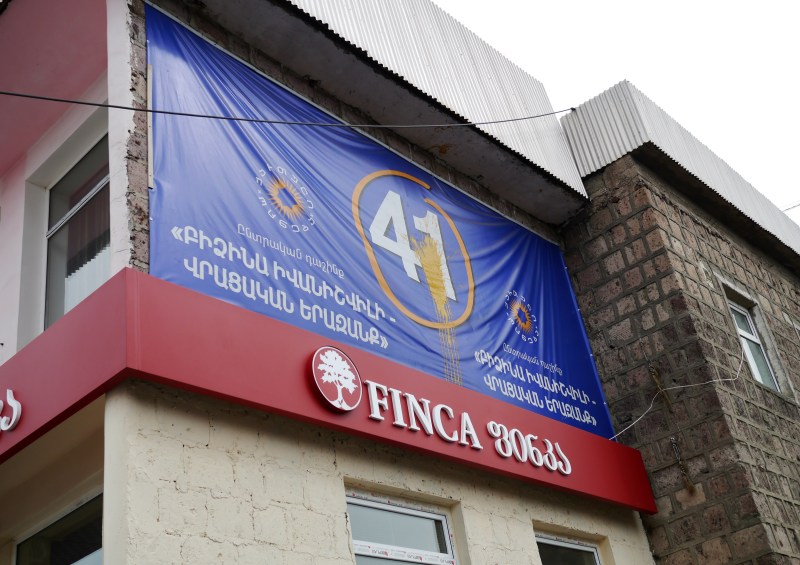
Here you can see Armenian in blue, and a splash of English and Georgian in red on our new branch office.
From Akhalkalaki, full of cake and good will, we drove on to the Vardzia cave monasteries with our local colleagues.
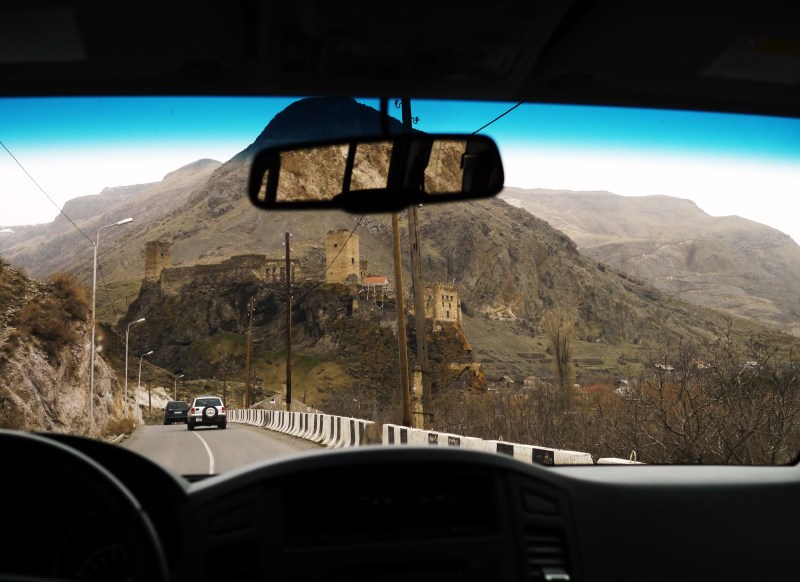 It’s not every day you drive past castles and fortresses for a work function. I may be the luckiest woman alive.
It’s not every day you drive past castles and fortresses for a work function. I may be the luckiest woman alive.
Stay tuned for a glimpse of the Vardzia cave monasteries, and an introduction to Georgian feasts!

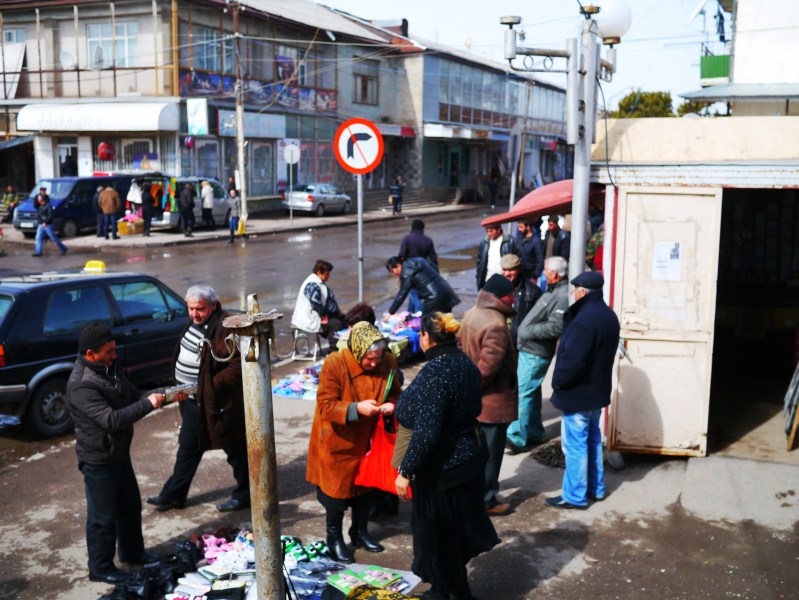
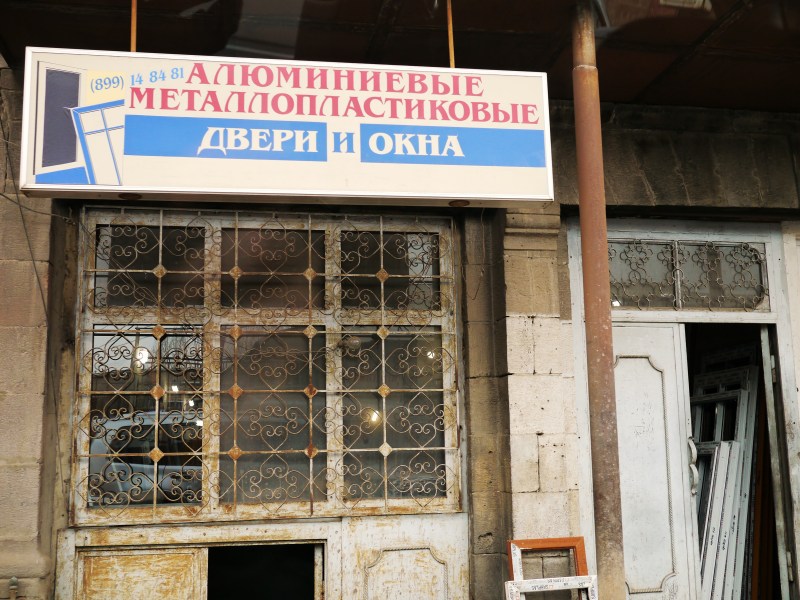
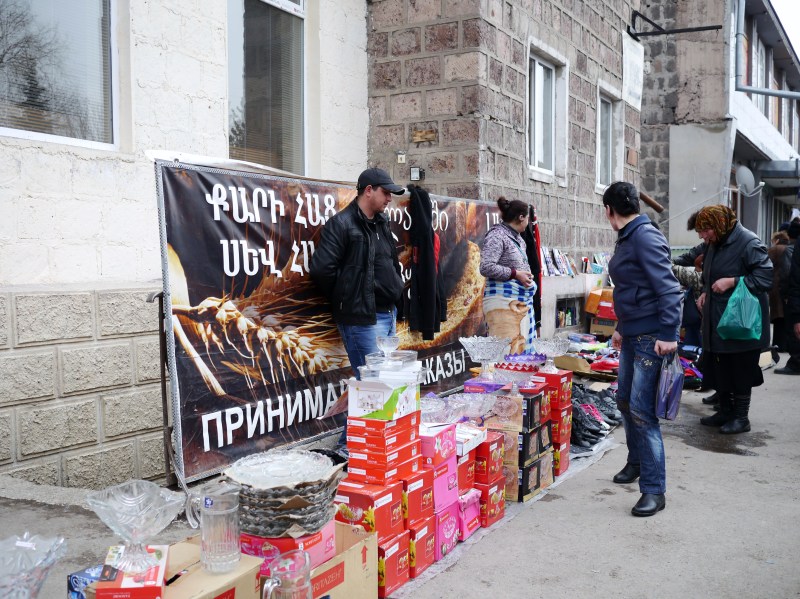
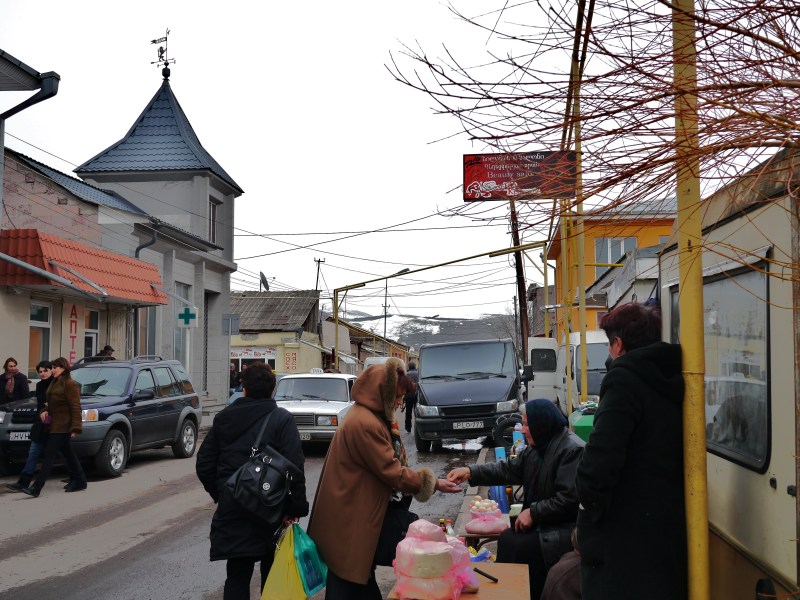
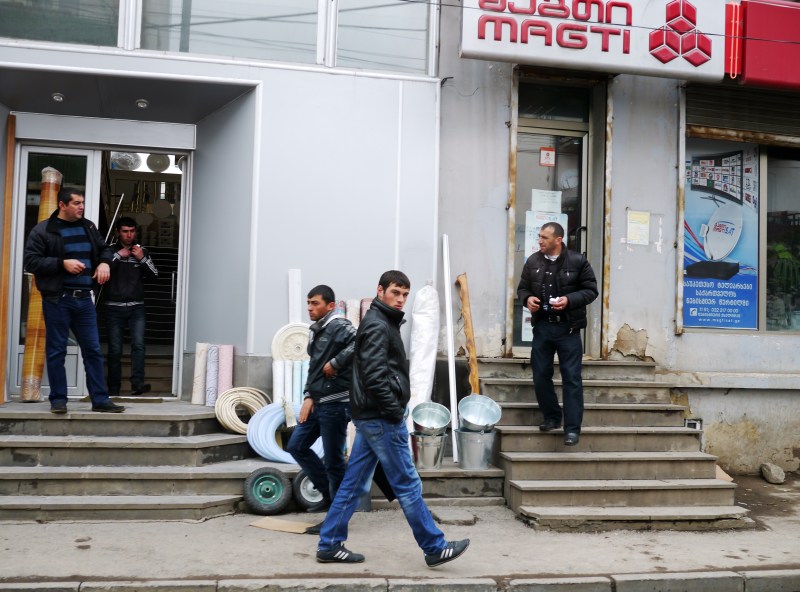
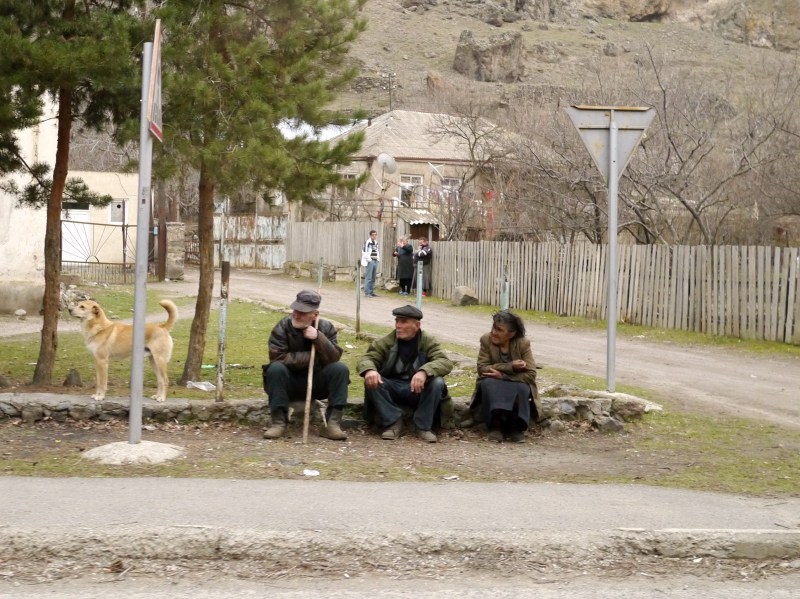
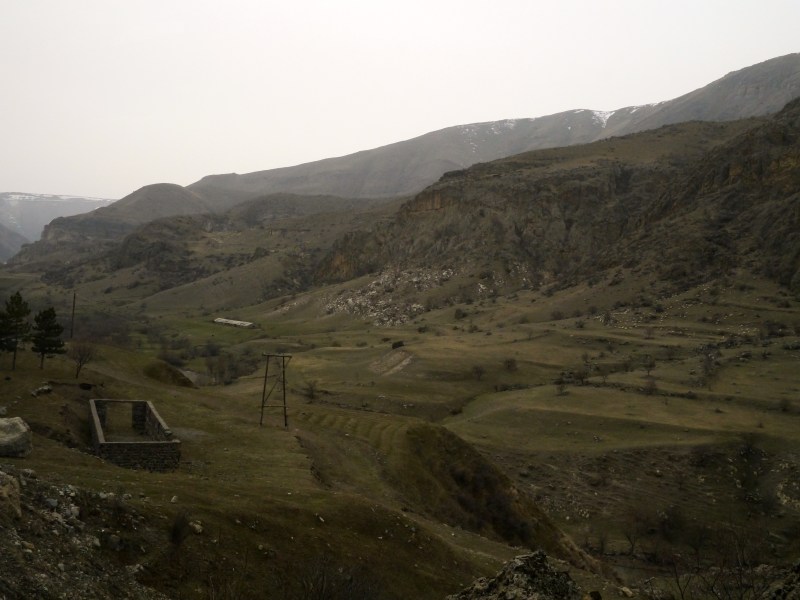
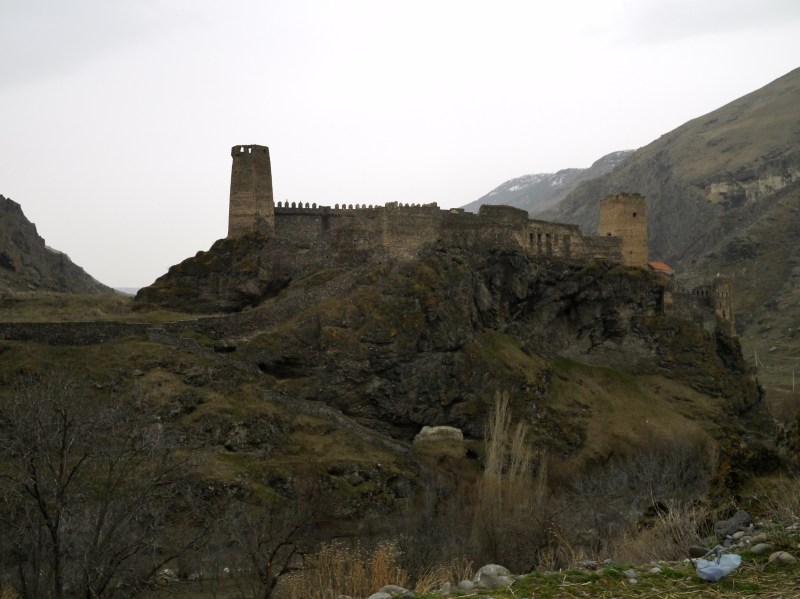
In my opinion Armenians are not as cocky as Georgians generally. Perhaps it is because they turned to Christian faith a century earlier than Georgia, so God had more time to work on their hearts. =) There is one Armenian everyone should know: Shavarsh Karapetyan, he saved 20 plus people & because of that his international career as a sportsman was over. What a legend though!
Pingback: Vardzia Cave Monasteries | Soulshine Traveler
I feel like I’m learning so much about a part of the world I’m unfamiliar with from you, Meg. 🙂
I’m so glad to hear that, Ceri! Lots more to come. I learn so much every day here, and I’m so grateful for that.
Are you still living in Mexico? I am so behind on your blog!
Don’t worry, I’m only catching up with you now too! I left Mexico a month ago, spent some time in NYC and now I’m back in Wales for the time being. Maybe I should make a little trip to Georgia while I’m on this side of the Atlantic! 😀
I love you my little Kardashian!
Love you too kaczka!
Nice picture
Thanks Jacek!
The landscape looks mighty, but I’m not so sure about the towns. Will watch for your following posts with interest.
Your right Johanna, Georgia is not a wealthy country, and there isn’t really a middle class. The economy completely collapsed with the end of the Soviet Union and really hasn’t taken off since then. As you can see, many of the buildings are in disrepair, or unused, and people tend to sell things from the sidewalk or small kiosks. The informal economy is just as visible as the formal one, here.
Looks fabulous!!!
It is, Nicole, fabulous and strange!
Life is never easy in this part of the world as cultural identity often sparks conflicts throughout the region. I read a book of an Indonesian journalist who traveled to the Central Asian countries where he encountered such uneasy relationships between ethnic groups. However I do agree that you might be the luckiest woman alive for being able to travel and live in a far-flung country like Georgia. 🙂
You’re right, Bama. It’s amazing how keenly and constantly aware everyone is of ethnic identity here, based on last names, or the shape of one’s nose, or their family history. Coming from such a young country myself, it’s fascinating to see the layers of history (and grudges) that build up when people stay in the same small area for so many thousands of years.